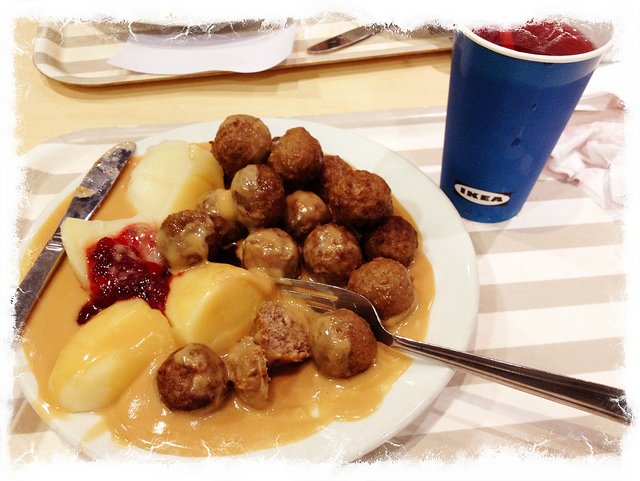
Ikea has decided to halt sales of its meatballs in Sweden after meatballs set for sale at its stores in the Czech Republic were found to contain horsemeat.
The discovery comes as European Union agriculture ministers meet in Brussels for talks widely expected to focus on the growing horsemeat scandal.
Inspectors in the Czech Republic said horsemeat was found in meatballs made in Sweden labelled as beef and pork.
The scandal began last month with frozen meals and burgers.
It spread from the UK and Ireland, with traces of horsemeat and horse DNA being found in food across the EU.
Supermarkets across Europe have had to withdraw affected prepared meals from their shelves.
Some 760kg (1,675 lb) of the Swedish-style meatballs were intercepted and stopped from reaching Czech shelves, officials told the Associated Press.
Horsemeat was also found in beef burgers imported from Poland, the Czech State Veterinary Administration said.
The labelling of the origin of meat and the traceability of the products will be high on the agenda at the EU ministers meeting.

Europe’s food retailers depend on a complex network of brokers, cold stores and meat-cutting plants around the continent from which to source the ingredients wherever they are cheapest.
The evidence of the past few weeks shows that national food safety authorities have failed to identify a problem in the supply chain over a significant period of time, he adds.
While the original agenda of the EU meeting included support for rural communities and the common fisheries policy, it is expected ministers will now try to come up with measures to tackle the horsemeat scandal.
Those could include a pan-European labelling project for frozen food, a move which has the backing of France and Germany.
Paris and Berlin both want compulsory labelling and traceability.
At least a dozen countries are involved in the horsemeat affair, which implicates some of the biggest meat processors and food producers.
Italy joined the list on Saturday, reporting horsemeat in some lasagne products.
On Friday, Germany’s consumer affairs ministry announced it had found traces of horse DNA in 67 of 830 food products tested.
Irish authorities on Friday suspended production at one processing plant after horsemeat was found labelled as beef.